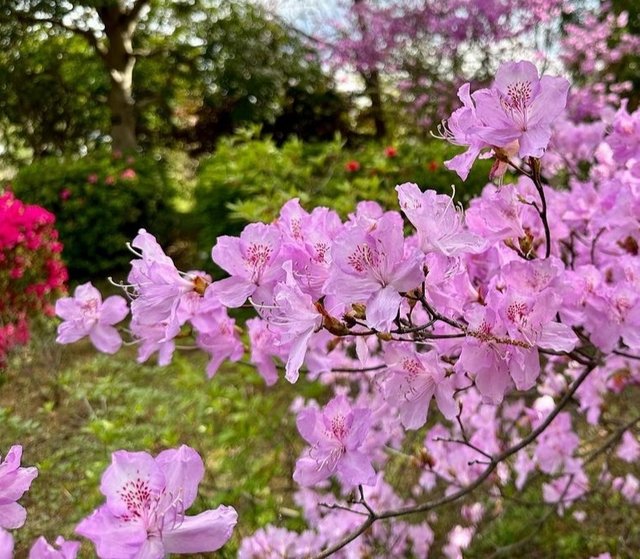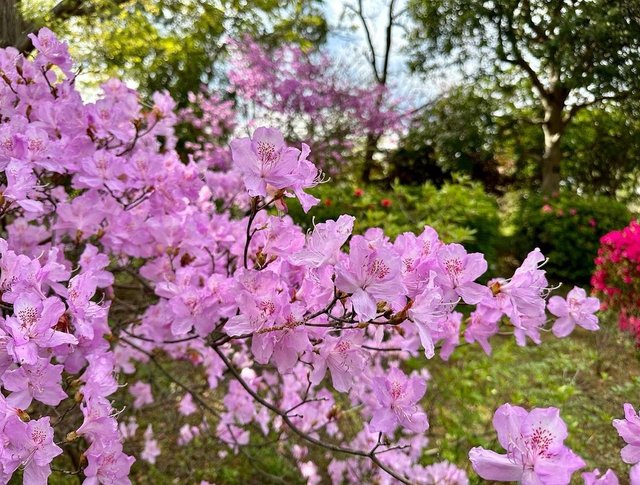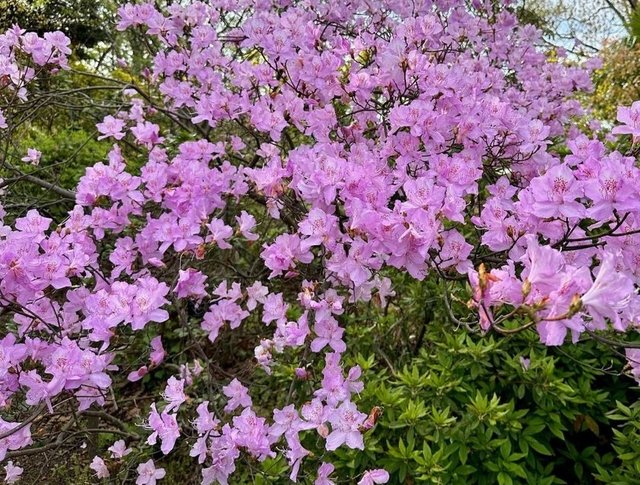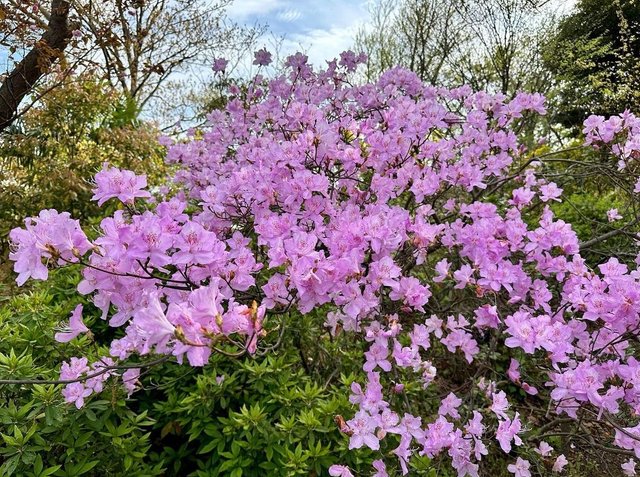Rhododendron mucronulatum: A Spectacular Display of Spring Beauty




In the realm of springtime blossoms, few sights rival the enchanting allure of the Rhododendron mucronulatum flower. Renowned for its exquisite beauty and captivating fragrance, this remarkable plant is a true testament to the wonders of nature.The Rhododendron mucronulatum, commonly known as Korean Rhododendron or Korean Azalea, boasts an arresting display of vibrant colors. Its delicate, bell-shaped flowers bloom in shades ranging from soft pink to rich magenta, creating a breathtaking tapestry of hues against the backdrop of early spring landscapes. Each blossom features a distinctive pointed tip, adding an elegant touch to its overall appearance.
One of the most remarkable qualities of the Rhododendron mucronulatum is its early flowering period. As one of the first shrubs to bloom in spring, it heralds the arrival of the season with its resplendent blossoms. In regions with milder winters, the Korean Rhododendron can begin blooming as early as February, offering a much-needed burst of color after the dreary winter months.Beyond its visual splendor, the fragrance of the Rhododendron mucronulatum is equally enchanting. The sweet, floral scent fills the air, enticing pollinators and delighting passersby with its intoxicating perfume. Whether planted in gardens, parks, or woodland areas, this aromatic shrub adds an extra dimension of sensory delight to any outdoor space.
In addition to its aesthetic and olfactory charms, the Rhododendron mucronulatum holds cultural significance in various regions. In Korea, where it is native, this species is celebrated for its beauty and resilience. It has also become a popular choice for landscaping and ornamental gardening in many parts of the world, admired for its ability to thrive in diverse climates and soil conditions.For those seeking to cultivate the Rhododendron mucronulatum in their own gardens, providing the right growing conditions is essential. This species thrives in well-drained, acidic soil with ample organic matter. It prefers partial shade to full sun, making it ideal for planting beneath taller trees or in dappled sunlight. Regular watering and mulching help to maintain soil moisture and protect the shallow roots from extreme temperatures.